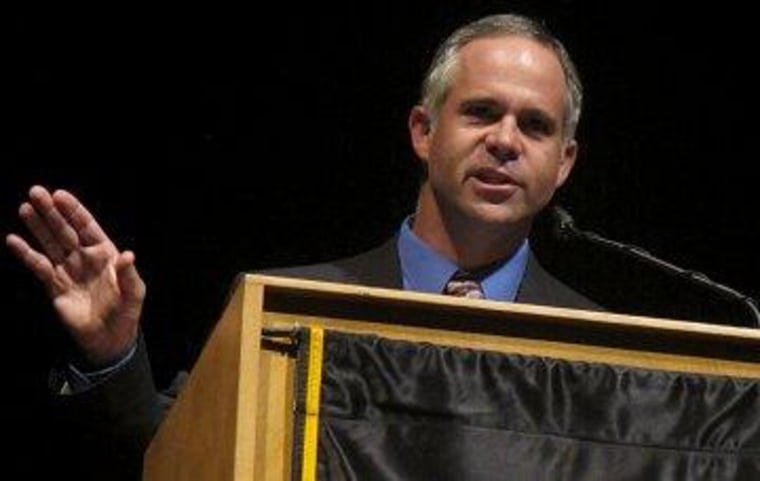The House Republican Conference met behind closed doors yesterday for a regularly scheduled gathering, but this time their private chat occurred shortly after the Supreme Court struck down the Defense of Marriage Act as unconstitutional. As one might imagine, the ruling was on lawmakers' minds.
Rep. Justin Amash (R-Mich.), among the more libertarian-minded members of the caucus, reportedly stood up during the meeting to urge caution. The congressman realized that many of his colleagues disagreed with the decision, but when it came to a public response, Amash said GOP lawmakers should be "judicious" with their responses for the good of the party.
It was sensible advice. Most Americans not only support marriage equality, but also have little use for the far-right Republican social agenda. The more the GOP responds to the court ruling with rhetorical guns blazing, the more it reinforces the caricature of Republicans as out-of-touch, anti-gay culture warriors.
And yet, the party really hasn't changed at all, despite public rebukes, and the far-right wing just can't help itself.
House conservatives will seek to reintroduce a constitutional amendment to ban gay marriage following the Supreme Court's decision to strike down the Defense of Marriage Act on Wednesday.Rep. Tim Huelskamp (R-Kan.) said he and other lawmakers would begin efforts to revive the Federal Marriage Amendment in the coming days."A narrow radical majority of the court has, in my opinion, substituted their personal views for the constitutional decisions of the American voters and their elected representatives," Huelskamp said at a conservative event sponsored by the Heritage Foundation.
Realistically, there's no credible chance of Congress actually approving such an amendment, but that doesn't mean it's unimportant.
For one thing, with Huelskamp pushing to revive an anti-gay constitutional amendment, we're very likely to see new fissures divide congressional Republicans even further -- and with much of the conference already in chaos, having another intra-party division is not a recipe for success.
Indeed, a measure like this will do exactly what Trent Franks' anti-abortion bill recently did: put House GOP leaders in an awkward position, before ultimately allowing a symbolic vote that makes extremists happy, regardless of whether the measure has any chance of becoming law.
And then there's the larger impact. For all the "rebranding" talk in Republican circles, a push for an anti-gay constitutional amendment will alienate the party even further from the American mainstream, while rallying progressive activists in advance of the 2014 midterms.
I haven't spoken to any Democratic Party officials about this, but I have a hunch they'd be delighted to see House Republicans invest time and energy into a new-but-not-improved Federal Marriage Amendment.
They may very well get their wish.
